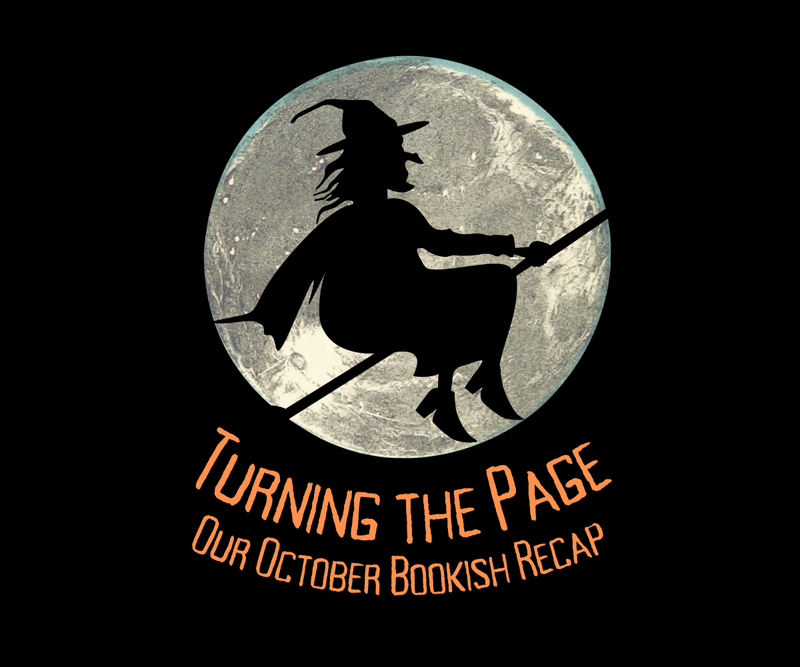Turning the Page
Our October Bookish Recap

Our October Bookish Recap
As the vibrant hues of autumn paint the landscape, October has brought a whirlwind of ideas, stories and discoveries to our platform. From Scots translation to Scottish cultural exploration. Join us as we take a moment to reflect on the highlights of October and revisit the impactful pieces that shaped our month. Let's dive into the stories that captivated our readers and set the stage for what’s to come!
___________________
Transforming Aeschylus’ timeless epic Agamemnon into Scots, William Imray’s translation takes readers deep into the ancient Greek world, recreating its dramatic energy with the unique cadence of the Scots language. This version, distinctively rhythmic and close to the original Greek metre, revives Aeschylus' poetry in a way that standard English translations have often struggled to match. As Alan Riach notes in the introduction, Scots, unlike English, readily lends itself to the intricate metrics and sonic qualities of Aeschylus’ language. Imray’s translation is a rare feat, capturing not only the narrative of Agamemnon but also its pace, tonal richness and musicality.
Imray’s careful attention to metre draws readers into the world of ancient tragedy with the authenticity of the Greek verse. His Scots lines ripple with the same intensity and breathless urgency as Aeschylus’ original, bringing the tragedy of King Agamemnon and Clytaemestra's revenge into vivid relief. Through the Scots language, we feel the weight of the House of Atreus' curse, the tragic inevitability of its cycles of violence and revenge, and the rhythmic pulse of fate that Aeschylus so skilfully wove into his play.
The story itself remains as compelling as ever: Agamemnon’s triumphant yet ominous return from the Trojan War, marked by the blood debt he owes for the sacrifice of his daughter, Iphigenia. This cycle of bloodshed and retribution is etched deeply into the text and Imray’s Scots translation provides a tonal backdrop that makes the grim inevitability even more haunting. Imray’s Agamemnon serves as both a linguistic and cultural bridge, connecting the primal tensions of Aeschylus' tragedy to modern Scots audiences while offering a fresh, bold reimagining for lovers of classical literature worldwide.
___________________

In Demarco’s Scotland, Roddy Martine and Richard Demarco explore the essence of Scotland’s identity and its cultural footprint on the world stage. Scotland’s greatest gift to the world has been, in Demarco’s words, itself — a vibrant, ever-evolving blend of art, history and innovation that celebrates both individuality and unity. Through whisky, family tartans, golf courses and musical traditions, Scotland has cultivated a universally recognised and beloved identity. As Martine points out, there is a unique warmth in this shared heritage: wear a kilt in Manhattan or Paris, and you make friends for life.
This book, a compelling sequel to Demarco’s Edinburgh, takes readers on a pilgrimage through Scotland’s cultural soul, spanning from ancient traditions to the progressive artistic landscape of today. Richard Demarco’s journey is central to this exploration; his connections with artists from Southampton to Poland and his reflections on the Edinburgh Festival illuminate the significance of Scotland’s cultural legacy as something deeply rooted yet universally resonant. Demarco’s vision, with its eclectic range and international friendships, positions Scotland as a cultural beacon, transcending geographical borders.
Roddy Martine’s essays artfully complement Demarco’s life story, creating a textured narrative that celebrates the spirit of creativity and discovery at the heart of Scottish heritage. Together, their voices urge readers to consider the transformative power of art and heritage — not only in defining a national identity but also in fostering connection and understanding worldwide. Demarco’s Scotland is a tribute to the enduring quest for meaning that has made Scotland an enduring symbol of culture and enlightenment.
___________________
October has taken us on a remarkable journey through Scotland’s cultural and literary landscape, from ancient Greek tragedies reborn in Scots to profound reflections on Scottish identity. William Imray’s Agamemnon translation breathes new life into classic Greek drama, enriching our understanding of Aeschylus’ powerful themes through the rhythms and colours of Scots. Similarly, Demarco’s Scotland invites us to view Scotland through the eyes of those who’ve tirelessly championed its art, culture and global friendships, highlighting Scotland’s universal appeal.
Both works underscore Scotland’s gift to the world: its unique ability to balance a deep respect for heritage with a bold embrace of artistic innovation. As we reflect on October’s literary highlights, we’re reminded of the vibrant creativity that Scotland offers, resonating well beyond its borders and inspiring readers around the globe. Whether in Scots or in heartfelt narratives of heritage, these works bring us closer to Scotland’s spirit, showing us how art and literature can foster connection, identity and an appreciation for what truly matters.